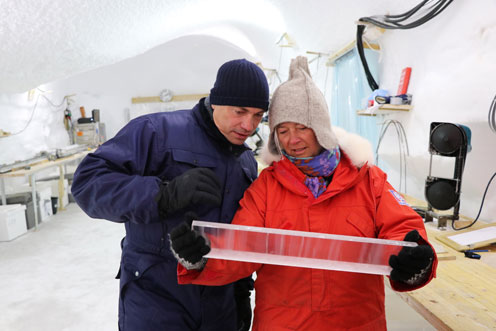Dorthe Dahl-Jensen awarded the Mohn Prize for her important role in climate change research
Professor at the Niels Bohr Institute, University of Copenhagen, Dorthe Dahl-Jensen, is awarded the Mohn Prize for her research and leading position in the combination of ice core data and climate modelling. Her effort to reconstruct ancient climate and its effects on the Greenland ice sheet and the global climate were also among the key elements. Her research has contributed to understanding the climate change we are now experiencing, which effect they will have on sea level and to improve predictions of future climate.

The Scientific Committee wrote in their recommendation:
“By ranking Dorthe Dahl-Jensen first, the committee underscores the importance of her decades-long leadership in building, coordinating and maintaining international teams”
Understanding climate change rates
Dahl-Jensen’s contributions and innovations are many. Of particular mention are: a) a groundbreaking paper published in Science, inverting ice core borehole temperature measurements to identify the true scale of ice age and Holocene temperature changes, thus opening up a new interpretation of water isotope measurements, traditionally the backbone of ice core climate studies.
Her diverse achievements range from studies of paleoclimate records to ice sheet and atmosphere dynamics, both on Greenland and in the Canadian Arctic (as well as in Antarctica).
Dahl-Jensen was also recently appointed Excellence Research Chair at the University of Manitoba, in Canada.
Prize ceremony and subsequent open event
The Mohn Prize will be presented during a closed event on January 27th 2020 in connection with the conference Arctic Frontiers 2020
On January 28, the award winner will give a lecture at the Mohn seminar, an event open to everyone. In this seminar, Dorthe Dahl-Jensen will present her scientific contribution at UiT the Arctic University of Norway in Tromsø.
The prize was established in collaboration between Academia Borealis, The Academy of Sciences and Letters of Northern Norway (NNVA), the Tromsø Research Foundation (TFS) and UiT the Arctic University of Norway (UiT).
